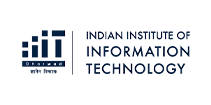The Future of IT Jobs in India: Top High-Paying Careers to Pursue in 2025
For many years, the IT industry in India has served as an innovation playground, and in the year 2025 there are still some of the best jobs, and best-paid positions that can be found in the Indian labor market. Because of the pacing technological advancement, companies will always be looking for people who have the skills necessary for digital transformation. From AI to Data Science, Cloud Computing and Cyber Security, the need for specialized talent has reached new heights.For those considering a career in tech, the question often arises: Which IT jobs will be the most profitable? Whether you are a professional with some level of experience or a recent graduate looking to forge your path, understanding which job roles are trending in the market and which are the best for advancing your financial future, is key. In this blog post, we will review the best jobs in IT for the Indian market and understand the primary skills and the average salary wages for each job. So, if you are ready to earn more money, let's break it down!
IT Sector India: An Overview
The IT industry in India has seen extensive growth over the years, and 2025 is no exception. With fast-evolving technologies such as Artificial Intelligence (AI), Machine Learning, Cloud Computing and Blockchain, the demand for talent has never been higher. As organizations across industries transact and automate their businesses, the ability to engage with sophisticated and specialized working talent is a need.As for salary compensation, IT professionals across India can expect perceived competitive pay, particularly those who are familiar with emerging technologies. For example, jobs focused on AI, Data Analytics, Cybersecurity and Development are considered highly-paid positions with many companies providing rewarding salary compensation to draw top level talent. In addition, positions at the senior leadership level like IT Manager or Director, can demand high salary levels for expected responsibilities to manage technology strategies across the enterprise.
However, salary expectations can be largely dependent on aspects such as experience, education, skill set, and organization. But as the digital landscape expands through existing and emerging technologies and business models, talent who stay ahead of the curve with various skills and certifications will have access to the highest package opportunities in the IT industry.
Top Highest Paying IT Jobs in India (2025)
The Information Technology industry in India remains vibrant, as firms actively seek professionals with experience in emerging technologies. In addition to being well-compensated, these occupations also offer a great deal of career advancement. Below is a summary of the highest paying IT jobs in India for 2025, their essential responsibilities, skills that are of consequence, and expected salaries.
1. Artificial Intelligence (AI) Engineer
AI Engineers are responsible for building smart algorithms that allow machines to think and learn like humans. They are widely utilized in automation, chatbots, self-driving cars, and predictive analytics. AI Engineers are invaluable in many areas including healthcare, finance, and e-commerce, where AI is driving change.
- Skills Required: machine learning, deep learning, neural networks, Python, TensorFlow, NLP, data analysis.
- Average Salary: ₹20-30 Lakhs per annum
2. Data Scientist
Data Scientists are responsible for analyzing complex data in order to extract valuable insights that will ultimately lead organizations to make data-led decisions. Data Scientists are essential components in a variety of areas, such as finance, healthcare and e-commerce, and companies depend on Data Scientists to strategize, identify trends, and optimize customer experiences using its large data sets.- Skills Required: Data analysis, machine learning, statistics, SQL, Python or R, and Big Data tools.
- Average Salary: ₹15-25 Lakhs per annum
3. Blockchain Developer
Blockchain Developers are responsible for coding secure and decentralized digital solutions, and they are highly sought after in finance, supply chain management, and cybersecurity among other areas. Blockchain Developers are essential in developing smart contracts, cryptocurrencies, and blockchain-based applications to enhance transparency and security.- Skills Required: Blockchain platforms (Ethereum, Hyperledger), Cryptography, Smart Contracts, DFA (Decentralized Finance), etc.
- Average Salary: ₹18-25 Lakhs per annum.
4. Cloud Architect
Cloud Architects design and manage cloud infrastructure. They ensure that a business has a scalable, secure solution for the cloud. With many businesses continuing to migrate toward the cloud, these positions are in high demand. Cloud Architects, generally, work to optimize cloud environments for cost, performance, and security.- Skills Required: AWS, Azure, Google Cloud, Cloud Architecture, DevOps, System Design.
- Average Salary: ₹20-35 Lakhs per Annum
5. Cybersecurity Engineer
Cybersecurity Engineers secure and protect networks, systems, and data from the damaging effects of cyber attacks. With the increase in cyber attacks, organizations are willing to pay a premium for talented professionals to implement cybersecurity in their organizations. Cybersecurity Engineers design security protocols, conduct risk assessments, and implement strong defense mechanisms in order to safeguard the organization from data breaches.- Skills Required: Ethical Hacking, Network Security, Firewalls, Penetration Testing and Encryption.
- Average Salary: ₹15-25 Lakhs per Annum
6. Full Stack Developer
Full Stack Developers work on both sides of application development, both frontend and backend, making them a highly valuable asset in web development and software development projects, due to their added skill sets. Full Stack Developers can develop a full seamless digital experience from UI to database.- Skills Required: JavaScript, Node.js, React.js, Angular, HTML/CSS, MongoDB and SQL.
- Average Salary: ₹12-20 Lakhs per Annum
7. DevOps Engineer
DevOps Engineers are the bridge between development and operations and are responsible for automating and optimizing processes for deployment of software. DevOps Engineers help organizations to release software faster and more efficiently, while alleviating downtime and providing better continuity and reliability of applications.- Skills Required: CI/CD, Docker, Kubernetes, Jenkins, Scripting languages and Cloud computing.
- Average Salary: ₹15-22 Lakhs per Annum
8. IT Managers/Directors
IT Managers are responsible for an organization's IT strategy, IT infrastructure, and information security. They help ensure that IT operates properly and oversees technology teams to accomplish business goals. They oversee decisions for IT investments, governance of IT, and development of policies for IT.- Necessary Skills: Project management within IT, leadership, administration in systems, organization-wide IT solutions.
- Average Salary Package: ₹18-30 Lakhs yearly
9. Software Architect
Software Architects create and design the high-level structure of software, ensuring the software will scale and be reliable. They make significant technical decisions for software projects and set software development standards for efficiency and performance.- Necessary Skills: Software systems design, programming languages, development methodologies in software, cloud computing.
- Remuneration: ₹ 20-40 Lakhs yearly
10. IT Advisor/Consultant
IT Consultants advise companies on how to maximize their technology strategies and implement digital solutions for efficiency and growth. They help companies make the most out of technology in order to innovate, reduce costs, and enhance productivity.- Necessary Skills: IT strategy, analysis of systems, information technology consulting, project management, technical knowledge.
- Average Package: ₹ 12-20 Lakhs yearly
IT Sector Expertise to Focus on for Higher Salaries
The IT field tends to reward those professionals who continue to be on top of the latest trends and technologies. If you want to secure an IT job that pays well in 2025, enhancing your skill set in these critical specialties will greatly improve your earning potential.
1. Artificial Intelligence & Machine Learning
AI and ML are changing elegantly in all industries, and companies are aggressively searching for talent to build smart systems and automated tools. If you can master some of the popular machine learning frameworks such as TensorFlow, PyTorch, and programming languages such as Python and R, you are bound to a well-paid AI career.
- Key Tools & Technologies: TensorFlow, Python, R, NLP, Deep Learning
- Who Needs It? AI Engineers, Data Scientists, Software Engineers
With the vast amount of data available, organizations need skilled professionals that can analyze data and make insights for key decisions. Learning data analysis techniques, statistical methods for modeling and ways to manage big data tools such as Hadoop and Spark will significantly boost your market value.
- Key Tools & Technologies: Python, R, SQL, Tableau, Power BI
- Who Needs It? Data Scientists, Business Analysts, Data Engineers
Companies are quickly transitioning to cloud-stored systems, creating a need for cloud architects and DevOps engineers. Skills in platforms such as AWS, Microsoft Azure, and Google Cloud, as well as automation and CI/CD pipeline skills, are valuable in pursuing high-paying careers.
- Tools and Technologies to Know: AWS, Azure, Google Cloud, Jenkins
- Describing Who Needs It: Cloud Architects, DevOps Engineers, IT Managers
With the increasing threat of cyber-attacks, cybersecurity has become a top priority for companies. Skilled professionals in penetration testing, networking security, and ethical hacking are urgently needed. Gaining certificates such as CEH- Certified Ethical Hacker and CISSP- Certified Information Systems Security Professional can help improve your chances of gaining a position in this field.
- Tools and Technologies to Know: Ethical Hackers, Firewalls, Cryptography, Kali Linux.
- Description of Who Needs It: Cybersecurity Engineers, Ethical Hackers, IT Security Analysts
Blockchain technology is transforming industries beyond just finance, including supply chain, healthcare, and real estate. Learning about several blockchain frameworks, such as Ethereum, Solidity, and Hyperledger, can aid in your ability to find a well-paying job.
- Tools and Technologies to Know: Smart Contracts, Solidity, Cryptography.
- Who Needs It? Blockchain Developers, FinTech Professionals
The need for web and software applications keeps on growing, making Full Stack development an important skill. Learning how to work with front-end and back-end technologies guarantees a decent job opportunity with high earning power.
- Key Tools & Technologies: JavaScript, SQL
- Who Needs It? Full Stack developers, Software engineers
IoT is connecting everything from smart homes to industrialization. Knowledge of IoT development, sensor technologies, and embedded systems can provide new high paying job opportunities.
- Key Tools & Technologies: Raspberry Pi, IoT Security
- Who Needs It? IoT Engineers, Embedded Systems Developers
IT managers and consultants should be trained in Agile, and thorough in Scrum and Kanban Project Management frameworks. Certification(s), such as PMP (Project Management Professional), or CSM, (Certified Scrum Master) can improve salary potential.
- Key Tools & Technologies: Agile, Scrum, Confluence
- Who Needs It? IT Managers, Project Managers, IT Consultants
How to Land a High-Paying IT Job?
Securing a high salary IT job in India requires more than just technical skills. Employers want professionals who can be a total package; they want legit problem solvers and professionals that can adapt and add value in their organization. Here are the steps you need to take to land a high-paying IT job in 2025:
1. Choose Your Specialization
There are many options in the IT sector providing students with diverse career opportunities. It is essential to choose a specialization that interests you and is in high demand for that market. IBM has identified many viable IT specializations such as AI, cloud computing, cybersecurity, full-stack development, and more. To ensure this, always research the latest job descriptions, salary expectations, and the demand for a specialization in your area before proceeding to find work.
2. Build Skills that are in Demand
Learning and mastering coding languages, tools, and frameworks that line up or align with your specialization can set you apart from your competition. You can also earn certifications related to your technical skills that align with what is being offered in the job world to support your resume. Moreover, continuous learning platforms such as AWS, Google Cloud, Microsoft, Coursera, Udemy, LeetCode, and so on, can continuously help keep you up to date with learning technologies as they change and evolve.
3. Create an Impressive Portfolio & Work on Relevant Projects
Experience gained from practice is valued very highly in the IT industry. Employers are more likely to hire candidates with practical knowledge than candidates with theoretical knowledge. For this, you can join open-source projects, build personal projects, or attend hackathons to increase your experience and showcase your skills. Use sources like GitHub to showcase your projects.
4. Get the Right Certifications
Certifications provide verification of your skill set, while also increasing your likelihood of receiving high paying job offers. Be sure to look for certifications that your career goals require and that are in demand in the industry. Here are some certifications to consider:
- AI & Data Science - Google Professional Data Engineer, TensorFlow Developer Certificate
- Cloud Computing - AWS Certified Solutions Architect, Microsoft Azure Fundamentals
- Cybersecurity - Certified Ethical Hacker (CEH), CISSP
- Project Management - PMP, Certified Scrum Master (CSM)
Entry-level professionals are likely to seek internships or freelance projects to get actual experience. Experience with actual projects will allow you to beef up your resume and improve your chances of being hired. So, look for internships on sites such as LinkedIn, Internshala, and company sites.
6. Network with Technology Professionals
Networking within the tech industry could also benefit you in a few different ways, perhaps even giving you better-paying job opportunities. Consider going to technology conferences, meet-ups, and social events to meet industry-related experts and recruiters. For better opportunities, use LinkedIn to find others in tech, connect with those individuals, and join Tech groups and communities.
7. Make a Great Resume and LinkedIn Profile
When drafting your resume or LinkedIn profile, keep in mind the elements to emphasize your skills, experience, and projects. A cohesive profile or resume helps improve the chances of a recruiter reaching out to you. Keep your resume between 1-2 pages unless your work experience requires something longer; and focus on achievements, not just roles. For additional benefits, apply keywords towards the job you want.
8. Being Educated for Technical & Behavior Interviews
Landing high-paying IT jobs comes with the territory of a lengthy interview process. Have preparation for coding assessment interviews, technical problem-solving interviews, behavioral style interviews, and many others. No matter the role you are applying for, there are usually some preparatory assessments in order to help the company get the best candidate. Practice coding challenges on sites like LeetCode, CodeChef, and HackerRank. For behavioral interviews, practice using the STAR (Situation-Task-Action-Response).
9. Educate Yourself in Industry Trends
Technology will always be evolving, which is why continuous education in current technologies is a factor. Following industry-related blog sites, and online courses, and reading even research papers, continuous education creates better opportunities for employment and skills improvement. For example, try placing tech blogging sites like TechCrunch, Wired, or Medium in your bookmarks. Reading and following these types of sites will help with current trends in the tech industry.
10. Focus on Leading IT Corporations and Negotiation of Salary
When you possess the necessary skills and experience you should target top tier information technology corporations such as Google, Microsoft, Amazon, and TCS. Be confident when negotiating salary and completing due diligence to know what is reasonable in terms of salary in the given market, prior to accepting a job offer. Use tools such as Glassdoor and LinkedIn Salary Insights to understand what the standards are for salaries in your specialization and location, prior to negotiating salary.
Conclusion
The information technology sector in India is expanding, and demand for skilled professionals is rapidly increasing. Whether you are an aspiring tech enthusiast or someone with existing work experience, there are favorable high-paying job opportunities ahead of you. The important factor to consider here is remaining ahead by selecting the correct specialization, mastering in-demand skills, and acquiring hands-on experience. Certifications, networking, and excellent problem-solving skills will only enhance your chances of receiving a generous job offer.
The technology sector is based on innovation and continuous learning. As new technologies arise, working to adapt and upskill yourself will help keep you up-to-date as an applicant moving into a competitive job market. Hence, if you are serious about obtaining a high-paying position in IT by 2025, start today - learn something and build a network.
FAQs (Frequently Asked Questions)
1. Which IT profession in India offers the highest compensation?
According to research conducted by various credible sources, IT professionals with expertise in AI including AI Engineers, Cloud Architects, Software Architects, etc., receive some of the largest salary packages of ₹30-40 LPA.
2. Do I need a degree to get a high-paying position in IT?
No, this is not a requirement. While several IT-professionals secure high-paying positions via boot camps, certifications, or simply upskilling on their own, a degree may serve as an advantage, especially in the hiring pool.
3. How can I switch to a high-paying IT role?
Certify yourself in trending or new technologies, pursue experience when possible, and network with professionals in the high-paying space.
4. Do all high-paying IT occupations require coding skills?
No, however many do, especially in the high-paying sector positions in AI and data science. Positions in IT management or cybersecurity don't require as much or even any coding.
5. What IT skills will be in demand in 2025?
AI, machine learning, cloud computing, cybersecurity, blockchain technologies, and DevOps skills will be among these highly sought after skills.
Trending Posts
-
DY Patil Pune Online: Courses, Admission and Fees 2025
-
Exploring Career Paths after 12th Commerce: Courses, Degrees, and Career Prospects
-
The Power of MAHE Online Education: A Complete Guide
-
S.P. Jain School of Global Management: Online Programs That Work for You
-
Top Online MBA Universities in India 2025
-
Transform Your Career with MDI Gurgaon’s Online Executive Education
-
Calculate Your Age Instantly: The Best Age Calculator Guide
-
From Certification to Degrees: All About Symbiosis School for Online and Digital Learning
-
Upskill from Anywhere with Suresh Gyan Vihar University's Distance Education
-
A Complete Guide to Sikkim Manipal University Online Programs
-
Start Your Online Degree Journey with Mizoram University in 2025: UG, PG, Diploma and Certifications
-
Why Choose Chitkara University CDOE? Course List, Admission & Key Highlights
-
A Definite Guide in 2025 to Chandigarh University Online (CU Online)
-
Decoding CGPA: How to Convert It into Percentage Easily
-
SGPA to Percentage Calculator: The Easy Way to Convert Your Grades































































